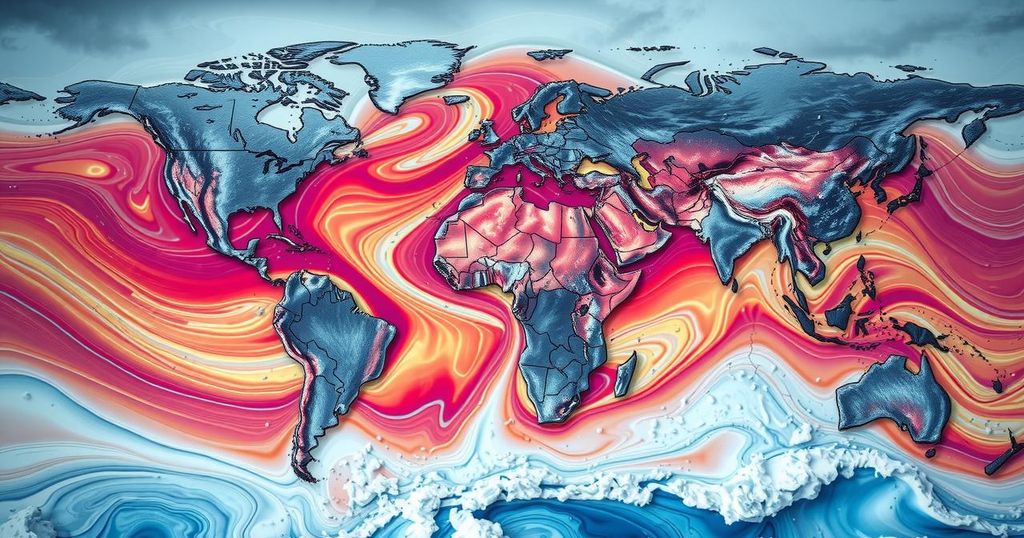UN Reports Record Heat and Extreme Weather in 2024 Due to Climate Change

The UN has reported that climate change resulted in extreme weather and record heat in 2024, making it the hottest year recorded. Greenhouse gas emissions reached unprecedented levels, exacerbating this crisis. The public has been urged to take immediate action to mitigate climate-related disasters in light of this alarming trend.
The United Nations has reported that 2024 witnessed unprecedented levels of extreme weather and record heat, prompting calls for immediate action to avert a climate disaster. The year is poised to become the hottest on record, marking a decade characterized by alarming temperature increases. The World Meteorological Organization (WMO) has highlighted a dramatic rise in greenhouse gas emissions, which further exacerbates the warming crisis. Secretary General Celeste Saulo noted the tangible impact of climate change, pointing to devastating floods, tropical cyclones, and extreme heat events across the globe that resulted in significant loss of life and economic strain. The intensity of heat has reached alarming highs, with some regions experiencing temperatures exceeding 50 degrees Celsius. The WMO has documented that January to September 2024 saw average surface air temperatures 1.54 degrees Celsius above pre-industrial levels, clearly indicating a trend towards potentially breaking previous temperature records. UN Secretary General Antonio Guterres has emphasized the urgent need for all nations to commit to reducing emissions ahead of the forthcoming deadlines set forth by international climate agreements, stating that action is both essential and feasible.
Efforts to limit global warming have been guided by the Paris climate accords, which aim to maintain temperature increases below two degrees Celsius above pre-industrial levels. However, projections suggest that without substantial collective efforts to curb emissions, the outlook remains dire. The WMO’s forthcoming full report on the State of the Global Climate 2024 is expected to provide comprehensive insights into the prevailing trends. The urgency conveyed by these findings underscores the necessity of transitioning swiftly to renewable energy sources while taking decisive steps to mitigate greenhouse gas emissions to safeguard the planet.
In conclusion, the situation regarding the climate crisis is critical, with 2024 exemplifying the exacerbating effects of climate change. Without immediate intervention and a concerted global effort to reduce emissions, the world risks continued devastation from climate-related disasters. The imperative to act is clear, as articulated by leading figures in environmental policy, affirming that the time to change course is now.
The climate change discourse has intensified in recent years, particularly as scientific consensus points to humanity’s role in exacerbating global warming through the emission of greenhouse gases. The significance of the Paris Agreement and its targets has been underscored as the world grapples with higher temperatures, altered weather patterns, and increasingly severe environmental phenomena. The WMO serves as a key entity in tracking and reporting changes in climate and weather patterns, making their findings critical in shaping policy and international responses to climate change.
The alarming escalation of climate change effects as reported by the United Nations and the World Meteorological Organization necessitates immediate global action to thwart further environmental degradation. There is a clarion call for countries to fulfill their commitments to the Paris climate agreements, which aim to limit warming and support renewable energy transitions. Only through collective efforts can humanity hope to avert the most catastrophic effects of climate change and secure a sustainable future.
Original Source: www.bangkokpost.com







